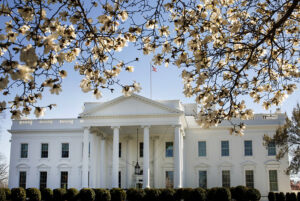On May 28, 2020, President Donald Trump issued the Executive Order on Preventing Online Censorship (EO) directing the Secretary of Commerce, in consultation with the Attorney General, to request that the Federal Communications Commission “expeditiously propose” regulations to clarify when a provider of an interactive computer service screening offensive content under Section 230 (c)(2)(A) of the Communications Decency Act (CDA) would not be able to benefit from the Good Samaritan provision of the CDA.
Twitter called the EO “a reactionary and politicized approach to a landmark law.” An executive order is not a law, and Congress cannot overturn the order. However, the EO requires a clarification of the law. Law are clarified and interpreted by the courts; they are not clarified by government agencies.

The CDA is an essential law of the web
The CDA is an important federal law, as, without it, the web as we know it would not be able to function, as intermediaries would be constantly held liable for torts, such as defamation, and would have to defend themselves in courts.
The law was passed by Congress after a New York court held in Stratton Oakmont, Inc., v. Prodigy Servs. that the operator of a computer bulletin board, where a third party had posted defamatory allegations, was a publisher. Congress explained in 1996 that “[one] of the specific purposes of [section 230] is to overrule Stratton-Oakmont v. Prodigy and any other similar decisions which have treated such providers and users as publishers or speakers of content that is not their own because they have restricted access to objectionable material.”
What led to this EO
The EO was signed following Twitter’s decision to add a civic integrity notice to two tweets posted by the President on May 26, 2020 which alleged mail-in ballot fraud in California (see here and here). The warning is a link reading “! Get the facts about mail-in ballots” and leads to a page offering a counter view. Twitter explained that it had done so “as part of our efforts to enforce our civic integrity policy. We believe those Tweets could confuse voters about what they need to do to receive a ballot and participate in the election process.”
President Trump reacted to this move on Twitter, posting “….Twitter is completely stifling FREE SPEECH, and I, as President, will not allow it to happen!”
The President is taking the view that his freedom of speech has been abridged by Twitter, a private company. The First Amendment of the Constitution does not generally protect freedom of speech, but instead prevents Congress from passing laws abridging freedom of speech. This means private companies may choose to set their own policies regulating speech, if they do not violate laws (this would be the case, for instance, if a private policy violated the Civil Rights Act).
The EO states that:
Twitter now selectively decides to place a warning label on certain tweets in a manner that clearly reflects political bias. As has been reported, Twitter seems never to have placed such a label on another politician’s tweet. As recently as last week, Representative Adam Schiff was continuing to mislead his followers by peddling the long-disproved Russian Collusion Hoax, and Twitter did not flag those tweets. Unsurprisingly, its officer in charge of so-called ‘Site Integrity’ has flaunted his political bias in his own tweets.
The EO appears to be less an official order than a personal message from the President lashing out at Twitter, at one of its employees in charge of Site Integrity, who has been named in another of the President’s tweets, and even at Representative Adam Schiff, the lead impeachment manager in the case which led to the impeachment of the President.
The Good Samaritan provisions of the CDA
Section 230 (c)(1) of the CDA created a safe harbor for providers and users of an interactive computer service for blocking and screening offensive material.
The CDA definition of “interactive computer service” includes information service, system, or access software provider providing or enabling computer access by multiple users to a computer server. They are, for instance, webhosts, search engines, e-commerce, and, yes, social media platforms, such as Twitter.
They are immune because they only act as intermediaries of third-party content. As such, they cannot be held liable for content posted through their services. They are intermediaries, not publishers.
The immunity for screening offensive content of the CDA
Section 230 (c)(2)(A) excludes provider or user of interactive computer services from civil liability for “any action voluntarily taken in good faith to restrict access to or availability of material that the provider or user considers to be obscene, lewd, lascivious, filthy, excessively violent, harassing, or otherwise objectionable, whether or not such material is constitutionally protected.”
The EO argues:
It is the policy of the United States to ensure that, to the maximum extent permissible under the law, this provision is not distorted to provide liability protection for online platforms that — far from acting in “good faith” to remove objectionable content — instead engage in deceptive or pretextual actions (often contrary to their stated terms of service) to stifle viewpoints with which they disagree.
The argument is that platforms are taking advantage of their power to screen offensive content, even content protected by the First Amendment, to promote their point of view.
What does the EO aim to achieve?
The EO argues that:
In a country that has long cherished the freedom of expression, we cannot allow a limited number of online platforms to hand pick the speech that Americans may access and convey on the internet. This practice is fundamentally un-American and anti-democratic. When large, powerful social media companies censor opinions with which they disagree, they exercise a dangerous power. They cease functioning as passive bulletin boards, and ought to be viewed and treated as content creators.
The argument is that social media platforms have now taken the role of a publisher and should no longer being able to be protected by Section 230 safe harbor.
The EO calls for the clarification of the scope of Section 230 immunity, arguing that “the immunity should not extend beyond its text and purpose to provide protection for those who purport to provide users a forum for free and open speech, but in reality use their power over a vital means of communication to engage in deceptive or pretextual actions stifling free and open debate by censoring certain viewpoints.”
The scope of section 230 immunity is at stake
The EO further argues that:
When an interactive computer service provider removes or restricts access to content and its actions do not meet the criteria of subparagraph (c)(2)(A), it is engaged in editorial conduct. It is the policy of the United States that such a provider should properly lose the limited liability shield of subparagraph (c)(2)(A) and be exposed to liability like any traditional editor and publisher that is not an online provider.
The “criteria” of Section 230 (c)(2)(A) is not clear. The Court of appeals for the Ninth Circuit recently noted in Enigma Software Group USA v. Malwarebytes, Inc. that the term “otherwise objectionable” is a “catchall” phrase, citing Judge Fisher’s concurring opinion in Zango, Inc. v. Kaspersky Lab, Inc., and reviewed the legislative history of the CDA, as a law aiming at protecting minors from online pornography. The Ninth Circuit court recognized in Enigma “that interpreting the statute to give providers unbridled discretion to block online content would, as Judge Fisher warned, enable and potentially motivate internet-service providers to act for their own, and not the public, benefit.”
The EO argues that the purpose of Section 203 (c) is “narrow,” thus appearing to argue that the CDA’s goal was only to protect users against pornography. However, the Supreme Court held in 1997, in Reno v. ACLU , that two provisions of the CDA, one for imposing sanctions for knowingly transmitting obscene or indecent messages, the other for sending patently offensive material to minors, were unconstitutional as abridging freedom of speech.
Yet, the CDA played in vital role in the development of the web as we know it, including social media, even after being stripped from provisions which had, in essence, given it its name, the Communications Decency Act… Therefore, the scope of Section 230 (c)(2)(A) is likely broader than pornography (obscenity is not protected by the First Amendment, see Roth v. United States.)
Congressional statutory findings for the CDA stated that interactive computer services “offer a forum for a true diversity of political discourse, unique opportunities for cultural development, and myriad avenues for intellectual activity,” and appeared to have broader goals for passing the law. It is an essential law for the web as we know it to operate. While the EO aims at preventing online censorship, it would likely lead to constant censorship, to the point that the social media business model may be seriously impacted, while impairing the robust marketplace of ideas, which is ideally created by the First Amendment.
Do facts still exist?
The tweets which had warranted the Twitter warning read:
There is NO WAY (ZERO!) that Mail-In Ballots will be anything less than substantially fraudulent. Mail boxes will be robbed, ballots will be forged & even illegally printed out & fraudulently signed. The Governor of California is sending Ballots to millions of people, anyone….. living in the state, no matter who they are or how they got there, will get one. That will be followed up with professionals telling all of these people, many of whom have never even thought of voting before, how, and for whom, to vote. This will be a Rigged Election. No way!
These statements have not been substantiated and thus breached Twitter’s civic integrity policy, under which Twitter’s services cannot be used “for the purpose of manipulating or interfering in elections or other civic processes.”
Twitter’s notice page featured several tweets taking the view that the President’s voting fraud claims were unsubstantiated, included a tweet featuring a link to a press release from the office of California Governor Gavin Newsom about his executive order requiring mail-in ballots to be sent to each Californian registered voter for the November General Election.
However, even a statement coming from an official source may soon no longer be trustworthy. On May 29, a tweet from the White House account was flagged by Twitter as breaching the platform’s glorification of violence policy. Are we indeed living in a post-truth world?



